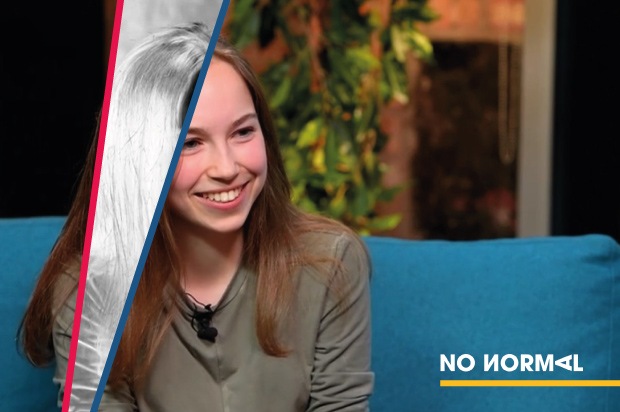My sister had anorexia and I didn’t know how to help #NoNormal
Tabitha wrote a short story about her experience witnessing her sister's eating disorder, and wants mental health support to be normalised.
True Stories

Tabitha's powerful story explores what it was like to witness a loved one experience a mental illness
My name is Tabitha Rubens and I’m sixteen. I live in London, and am currently studying for my A-levels. Next, I hope to study Chinese at University. My other interests include writing, reading and acting in my spare time.
It is isolating to experience mental illness
I wrote the story Oh Sister, Invisible, which was shortlisted for the BBC Young Writers’ Award 2018 with First Story and Cambridge University. It’s a poetic story of helplessness, as a sister watches her sibling disappear with each passing season, as anorexia takes hold. Grief is a big theme, but also courage. It’s intensely personal and conveys the unique power of writing to convey empathy and experience. I wanted to show that it’s okay to talk to friends and family, as well as medical professionals if you are affected, whether directly or indirectly, by mental illness. The stigma that exists around the topic means it is an incredibly isolating thing to experience. The more we talk about it, the more this will hopefully change.
When my sister was ill, I didn’t know what to say or do
I think the hardest part of seeing a relative battling a mental illness is watching them suffering, without feeling that you have any power to help them. When my sister was ill, I didn’t know what to say or do. But I was so desperate to help her get better.
Mental health issues are becoming more prevalent
My experience has woken me up to how widespread mental health issues are becoming, especially amongst my generation. Mental health support needs to become normalised, regardless of the severity of your situation. I want to try and work towards a time in which everyone feels comfortable seeking help for mental health issues, just as they would for physical ones.
It’s so important to talk about what you’re going through
I am by no means qualified to give advice, but I would say definitely seek help from medical professionals. I’d also advocate that you talk to friends, family and others truthfully about what is going on. This can be incredibly hard but it can make a difference. Remember – you are never alone!
You can listen to Tabitha’s short story here, or read it here.
Next Steps
- Beat help people overcome eating disorders through helplines, online support and self-help groups. Call 0808 801 0677 or, if you're under 18, call their Youthline on 0808 801 0711.
- Eating Disorders Support has a telephone helpline with 24/7 answer message service and email support for people with eating disorders and anyone concerned about them. Call on 01494 793223.
- YoungMinds are the voice for young people's mental health and wellbeing.
- Chat about this subject on our Discussion Boards.
By
Updated on 01-Nov-2018
No featured article










